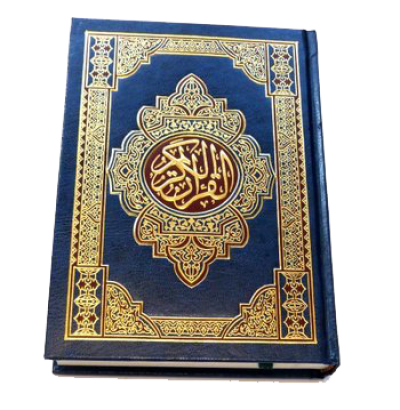Some of The Tremendous Benefits of Dhikr
In The Name of Allaah, The Most Merciful, The Bestower of Mercy.
The importance of Dhikr [remembrance of Allaah] and it’s tremendous benefit is not hidden from any Muslim, because it is one of the loftiest goals and most beneficial deed [through which one becomes mindful of Allaah, obedient to Allaah, keeps away from prohibitions, earns Allaah’s love, help, protection etc]. Indeed, in many places – in the noble the Qur’aan – Allaah commanded [us to remember Him], urged [us to do so], praised the people who remember Him and commended them with the most excellent and the finest commendation. Allaah [The Exalted] said:
[ يَا أَيُّهَا الَّذِينَ آمَنُوا اذْكُرُوا اللَّهَ ذِكْرًا كَثِيرًا – O you who believe! Remember Allah with much remembrance]. [Surah Al-Ahzaab. Aayah 41]
Allaah [The Exalted] said: [فَإِذَا قَضَيْتُم مَّنَاسِكَكُمْ فَاذْكُرُوا اللَّهَ كَذِكْرِكُمْ آبَاءَكُمْ أَوْ أَشَدَّ ذِكْرًا – So when you have accomplished your Manasik [(i.e. Ihram, Tawaf of the Ka’bah and As-Safa and Al-Marwah), stay at ‘Arafat, Muzdalifah and Mina, Ramy of Jamarat, (stoning of the specified pillars in Mina) slaughtering of Hady (animal, etc.)]. Remember Allah as you remember your forefathers or with a far more remembrance. [Surah Al-Baqarah. Aayah 200]
Allaah [The Exalted] said: [الَّذِينَ يَذْكُرُونَ اللَّهَ قِيَامًا وَقُعُودًا وَعَلَىٰ جُنُوبِهِمْ – Those who remember Allah (always, and in prayers) standing, sitting, and lying down on their sides. [Surah Aal Imraan. Aayah 191]
Allaah [The Exalted] said: [وَالذَّاكِرِينَ اللَّهَ كَثِيرًا وَالذَّاكِرَاتِ أَعَدَّ اللَّهُ لَهُم مَّغْفِرَةً وَأَجْرًا عَظِيمًا – And the men and the women who remember Allah much with their hearts and tongues (while sitting, standing, lying, etc. for more than 300 times extra over the remembrance of Allah during the five compulsory congregational prayers) or praying extra additional Nawafil prayers of night in the last part of night, etc.) Allah has prepared for them forgiveness and a great reward (i.e. Paradise)]. [Surah Al-Ahzaab. Aayah 35]
In these Aayaat, Allaah commanded us to remember Him a lot due to the fact that a person is greatly in need of it -greatly in need of Allaah and cannot do without Him in the twinkling of an eye. Every moment in which a person is devoid of remembrance of Allaah [The Mighty and Majestic], it will be against him and not for [his benefit]. The loss [incurred as a result of the absence of Dhikr] is much greater than what he earns whilst being heedless of Allaah, and he will greatly regret that when he meets Allaah on the Day of Judgement. Aa’isha [radiyallaahu-anhaa] said that the Prophet [sallal laahu alayhi wasallam] said, “There is not an hour that elapses in which the son of Aadam did not remember Allaah [The Exalted], except that it will be a source of regret for him on the day of judgement.’’ [Ref 1]
The [authentic] Sunnah is filled with narrations that shows the virtue of Dhikr, its high status, lofty station and its numerous good outcomes and benefits for those men and women who remember Allaah a lot. Abu Ad-Dardaa [radiyallaahu-anhu] said that Allaah’s Messenger [sallal laahu alayhi wasallam] said, “Shall I not inform you of the best of your deeds, the purest in the sight of your Owner [i.e. Allaah] – that which raises you to your highest status, better for you than spending gold and silver, better than meeting your enemy so that you strike at their necks and they strike at yours?’’ [Ref a] They replied: ‘’Certainly O Messenger of Allaah! He said, “Remembrance of Allaah.” [Ref 2]
Abu Hurairah [radiyallaahu-anhu] said that the Prophet [sallal laahu alayhi wasallam] said, “The Mufarridoon have preceded [others]”, so they [i.e. the people] said, ‘O Messenger of Allaah! Who are the Mufarridoon? He said, ‘Those men and women who remember Allaah a lot.’’’ [Ref 3]
Abu Moosaa Al-Ash’ari [radiyallaahu anhu] said that the Prophet [sallal laahu alayhi wasallam] said, “The likeness of the one who remembers Allaah compared to the one who does not remember Allaah, is like the one who is alive compared to the one who is dead.” [Ref 4]
The Ahaadeeth related to this subject matter are numerous, and perhaps it is appropriate at this point that I specifically mention that which the people of knowledge [i.e. the upright scholars] have stated regarding the benefits of Dhikr, which those who remember Allaah will obtain in this worldly life and on the day of judgement. The best amongst those who spoke about this subject matter was Al-Allaamah Ibnul Qayyim [rahimahullaah] in his book titled ‘Al-Waabilus Sayyib.’ I will therefore mention to you one benefit stated by Ibnul Qayyim [rahimahullaah] from the benefits of Dhikr; he said, “From benefits of Dhikr is that it repels shaytaan, restrains and crushes him. Allaah [The Exalted] said: [وَمَن يَعْشُ عَن ذِكْرِ الرَّحْمَٰنِ نُقَيِّضْ لَهُ شَيْطَانًا فَهُوَ لَهُ قَرِينٌ – And whosoever turns away (blinds himself) from the remembrance of the Most Beneficent (Allah) (i.e. this Qur’an and worship of Allah), We appoint for him Shaitan (Satan – devil) to be a Qarin (an intimate companion) to him]. [Surah Az-Zukhruf. Aayah 36]
Allaah [The Exalted] said: [إِنَّ الَّذِينَ اتَّقَوْا إِذَا مَسَّهُمْ طَائِفٌ مِّنَ الشَّيْطَانِ تَذَكَّرُوا فَإِذَا هُم مُّبْصِرُونَ -Verily, those who are Al-Muttaqun (the pious – see V.2:2), when an evil thought comes to them from Shaitan (Satan), they remember (Allah), and (indeed) they then see (aright)]. [Surah Al-A’raaf. Aayah 201]
Al-Haarith Al-Ash’ari [radiyallaahu anhu] said that the Prophet [sallal laahu alayhi wasallam] said: ‘’Allaah commanded Yahya bin Zakariyyah to implement five commands and to command the Children of Israel to implement them, but Yahya was slow in carrying out these commands. Eesaa said to Yahya, ‘You were commanded to implement five commands and to command the Children of Israel to implement them. So, either command, or I will do it.’ Yahya said, ‘My brother! I fear that if you do it before me, I will be punished or the earth will be shaken under my feet.’ So, Yahya bin Zakariyyah called the Children of Israel to Bayt Al-Maqdis (Jerusalem), until they filled the Masjid. He sat on the balcony and said, ‘Allaah commanded me to implement five commandments and that I should command you to adhere to them….’ then Yahyah commanded them implement Tawheed, perform Salaah, observe Siyaam and give Sadaqah; then he mentioned the fifth affair and said, ‘I command you to remember Allaah, for indeed the example of this deed is that of a man who the enemy is tirelessly pursuing and thus he takes refuge in a fortified fortress. Likewise, the servant cannot fortify himself against shaytaan except through remembrance of Allaah….to the end of the hadeeth’’’ [Ref 5]
Al-Allaamah Ibnul Qayyim [rahimahullaah] stated that this hadeeth contains a great affair and that it is befitting for every Muslim to memorise, understand [and act upon it]. [Ref 6]
This hadeeth gathers great virtues related to Dhikr – that Dhikr repels shaytaan and safeguards a person against him, and that it is like a fortified fortress and a robust shield, which is the only means a person can [utilise to] protect himself from this fierce enemy. There is no doubt that this is a tremendous virtue of Dhikr, and because of this Ibnul Qayyim [rahimahullaah] said, ‘’If there was no other virtue related to Dhikr except this quality, then it would be true [or justified to say that] a person should not isolate his tongue from the remembrance of Allaah [The Exalted] and should never stop seeking refuge with Allaah through remembrance of Him; for indeed he cannot protect himself from his enemy [shaytaan] except through Dhikr. His enemy does not interfere [or approach him] except when he is in a state of heedlessness, so the enemy keeps an eye on him and when he is heedless, he pounces and preys on him. But when he remembers Allaah [The Exalted], his enemy withdraws, becomes small and is restrained until he appears like a wren and a fly. And due to this he is called Al-Waswaasul Khannaas – meaning: The one who whispers in the hearts, but when a person remembers Allaah [The Exalted], he withdraws-meaning: He stops and refrains. Ibn Abbaas [radiyallaahu-anhumaa] said, ‘Shaytaan lie in wait near the son of Aadam’s heart, so when the son of Aadam forgets and becomes heedless, he whispers; but if the son of Aadam remembers Allaah, he withdraws.’’’ [Ref 7]
We ask Alaah [The Exalted] to protect us the evil of shaytaan and his [enticement towards] polytheism, his madness, arrogance and poetry.
[Ref 1: Shu’ab Al-Eemaan’ Number 508. Al-Hilya 5/362. Hadeeth was graded ‘Hasan’ By Imaam Albaani (rahimahullaah) in Saheeh Al-Jaami. Number 5720]; [Ref a: https://www.abukhadeejah.com/salafi-shaikh-fawzaan-on-jihaad-in-our-times-and-the-guidelines-of-jihaad-according-to-islam/ ]; [Ref2: Saheeh Al-Jaami 2676]; [Ref 3: Saheeh Muslim. Number 2676]; [Ref 4: Saheeh Al-Bukhaari. Number 6407]; [Ref 5: Musnad Imaam Ahmad 4/202; Sunan Tirmidhee. Number 2863. Hadeeth was graded Saheeh by Shaikh Albaani in Saheeh Al-Jaami. Number 1724]; [Ref 6: Al-Waabilus Sayyib. Page 31]; [Ref 7: Al-Waabilus Sayyib. Page 72]





